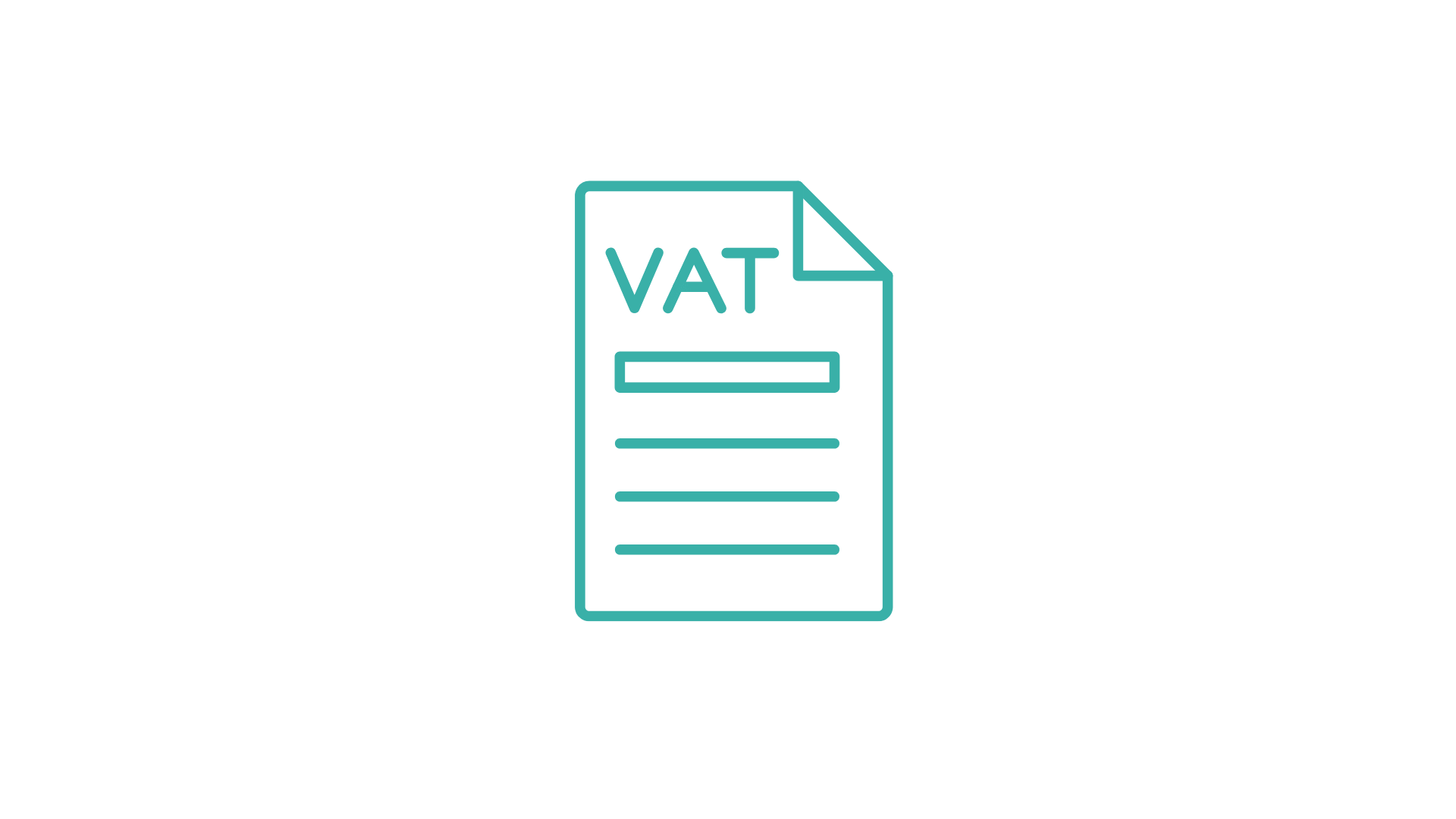When starting a business, every entrepreneur must make several very important decisions, including choosing the appropriate form of taxation and deciding whether it is worth being a VAT payer. VAT is calculated as a tax on goods and services, which theoretically should be paid by the entrepreneur, but in practice this tax is added to the price of products. This means that VAT is ultimately paid by the consumer. There are industries that have imposed VAT affiliation, but some companies can choose whether they want to be a VAT payer. So is it worth being a VAT payer? What are the advantages and disadvantages of being a VAT payer?
Being a VAT payer - what does it mean?
VAT is one of the two basic taxes paid by entrepreneurs. Many people wonder whether to be a VAT payer or not. But what does it mean to be a VAT payer? We refer to VAT taxpayers as VAT payers who add VAT to their products and services. We call such entrepreneurs active VAT taxpayers.
It is worth noting that there is also the term "VAT payer". However, it is a term referring to the authorities responsible for collecting and deducting VAT from taxpayers to the tax office. The VAT payer may be, for example, a court bailiff who collects the overdue tax. Being a VAT payer is often incorrectly used to refer to being a VAT payer.
In the case of companies, we talk about "being a VAT person", i.e. being an active or passive VAT payer. Active VAT taxpayers are entrepreneurs who must or have decided to tax their business with VAT. Being a passive VAT payer means business entities that, despite being registered for VAT, enjoy exemption from taxation.
[accounting_banner]
Who must and who can be a VAT payer?
First of all, it should be noted that being a VAT payer must be considered in two categories:
- obligations,
- freedom.
This division means that there are two groups of business activities - those that must be an active VAT payer, and those that have a choice whether to be a VAT payer or not.
The VAT Act, in Article 5, precisely defines who is obliged to be a VAT payer. These include traders involved in the production and distribution of goods subject to excise duty and companies that provide legal or advisory services. In addition, VAT payers must be entrepreneurs who in the previous accounting year achieved revenues of over PLN 200,000. zloty.
In other cases, companies can decide whether they want to become an active VAT payer or prefer to take advantage of the tax exemption. The final decision depends primarily on the type of business activity, services provided or goods sold. In many situations, it also depends on the number of transactions concluded with other VAT payers, i.e. contractors, and on the individual consumer's share in the company's revenues. However, there are activities in which the benefits of being a VAT payer far outweigh the additional obligations of the entrepreneur.
When is it worth being a VAT payer?
Every entrepreneur who is just starting his adventure with running a business wonders whether it is better to be a VAT payer or not. These are obvious dilemmas on which the profitability of running a business depends. In many cases, it simply pays to be a VAT payer.
We are talking here primarily about enterprises that aim rather at corporate clients. If you issue a VAT invoice, you automatically become a more attractive business partner for other companies operating with VAT.
Being a VAT payer is also profitable for entrepreneurs who obtain surpluses of input VAT over output VAT. Output VAT is added to the price of goods and services. It is on the revenue invoices. Input VAT, on the other hand, is the tax included in cost invoices. Ultimately, companies pay the difference between input VAT and output VAT to the tax office.
Whether it is worth being a VAT payer depends, among other things, on whether you incur high costs of running a business. The surplus of input VAT gives high amounts of VAT deduction, which helps to maintain the company's financial liquidity.
How to be a VAT payer?
If you have opted for VAT, the first step to register is to go to the tax office and submit the VAT-R form. However, it should be remembered that a new version of this form is usually released every year - so the information in parentheses next to the name of the application is also important. Also remember that you can submit this document to the tax office competent for your place of residence, and in the case of a company it is the place of business activity.
It is necessary to fill in six boxes, each of which has several or a dozen or so windows. The information that the entrepreneur must provide in the form is primarily:
- taxpayer details,
- circumstances determining the tax obligation,
- information on submitting declarations,
- information on intra-community transactions.
Despite attempts to simplify the entire procedure as much as possible, registering as a VAT payer is problematic for many people. The situation is complicated by the fact that in some tax offices the waiting time for registration as an active VAT payer can last even several weeks. Incorrect completion of the application additionally and unnecessarily extends this period. So it is worth using professional help accounting office.
Being a VAT payer - advantages and disadvantages
Larger entrepreneurs usually see only the advantages of being a VAT payer. This is primarily related to the possibility of deducting VAT. However, it is worth bearing in mind that there are also disadvantages of VAT. What are the advantages and disadvantages of being a VAT registered person?
Defects:
- extended bureaucracy - the need to keep a VAT register and submit declarations,
- complicated tax law regulating VAT,
- frequent changes in VAT law,
- in case of doubts regarding the tax refund, the tax office undertakes an inspection (this is a stressful experience),
- different VAT rates for different products.
Advantages:
- the possibility of deducting VAT and high tax refunds,
- increased attractiveness for other VAT registered companies,
- ultimately, it is not the entrepreneur who pays the VAT, but the consumer.
The advantages and disadvantages of being a VAT registered person are quite subjectively perceived by various entrepreneurs. Currently, one of the most frequently mentioned disadvantages, i.e. the increased bureaucracy related to VAT, is the concern of accounting offices, such as our Open Profit, which deal with full accounting.
When is it not profitable to be a VAT payer?
Despite the undoubted advantages of being a VAT payer - especially financial ones, there are business activities for which VAT will not be an advantageous option. They are usually companies that do not exceed 200,000 PLN of revenue, and their sale of goods and services is addressed to individual customers. By adding the VAT rate to the price, these enterprises lose their market competitiveness. If there are many non-VAT companies in your industry, it will be difficult for you to maintain attractive prices that will attract buyers. In addition, when conducting VAT activities, when most of your contractors are not VAT taxpayers, there is no point in doing so - then you cannot deduct the tax.
Is it worth being a VAT payer on a lump sum?
The question of whether it is worth being a VAT registered person certainly gives sleepless nights to many new entrepreneurs. However, there is another issue that raises quite a lot of emotions - there is a myth about the impossibility of being a VAT payer on a lump sum. This is not true. Income tax settled on a lump sum and VAT are two completely different taxes that are not mutually exclusive. You can be both a VAT payer and a flat-rate payer at the same time. However, is such a solution beneficial?
As in most cases - it depends on the type of business and the target group to which the entrepreneur plans to reach. One of the cases of profitability of combining VAT with a lump sum is programming activity. It is then possible, for example, to deduct a telecommunications service from VAT.
Is it worth being a VAT payer? Get help at Open Profit
Starting a business comes with a lot of stress. In addition, there are worries related to the choice of the appropriate form of taxation and decisions regarding VAT. At Open Profit, we offer comprehensive assistance in setting up a company - we also deal with full accounting, including servicing active VAT taxpayers. Our experts will advise you on the best tax form for your business and help you go through all formalities - both when setting up your company and in the later stages of your business.
Contact us!
FAQ:
- What does it mean to be a VAT payer?
Being a VAT person refers to active VAT taxpayers, i.e. entrepreneurs who, out of necessity or choice, add VAT to their goods and services. Some forms of economic activity are subject to the VAT obligation, while other companies can decide whether they want to become VAT payers.
- When is it worth being a VAT payer?
Belonging to VAT pays off in particular to entrepreneurs whose services are directed primarily to other companies that are also VAT registered. Also, enterprises that receive higher input VAT than output VAT benefit from VAT refunds.
- What are the advantages and disadvantages of being a VAT registered person?
The advantages and disadvantages of being a VAT payer depend largely on the type of business. However, we can distinguish some basic pros and cons.
Advantages:
- the possibility of deducting VAT and obtaining refunds,
- business attractiveness for other VAT taxpayers.
Defects:
- increased bureaucracy,
- complicated tax law and frequent changes.


